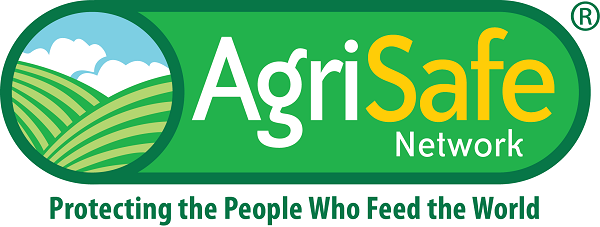AgriSafe Learning
Courses
Learn more about courses and certifications for ag health and safety professionals.
Resource Library
Access resources, curriculum, and content specific materials from our library.
Check out AgriSafe's most recent webinars!
Protecting Poultry Workers from Avian Influenza: Roundtable Discussion
Join this free webinar to learn the latest information on avian influenza threats affecting workers and animals in the poultry industry. Hear from industry leaders and public health researchers as they share current insights, risks, and prevention strategies.
Empowering Farmers and Ranchers with Disabilities through Assistive Technology
Join this session to learn how assistive technology is transforming agriculture for farmers and ranchers with disabilities—and how, together, we can build more inclusive rural communities.
Protecting Dairy Workers from Avian Influenza: Roundtable Discussion
Join this free webinar to learn the latest information on avian influenza threats affecting workers and animals in the dairy industry. Hear from industry leaders and public health researchers as they share current insights, risks, and prevention strategies.
Tackling the Mental Stress of Avian Influenza in Agriculture - Nebraska Poultry Producers
For producers, spotting the first signs of a possible avian influenza outbreak can bring on a flood of stress, worry, and tough decisions. The emotional toll — before, during, and after flock depopulation — is real, and it affects everyone involved. So how do we recognize when someone’s struggling with all of this? And maybe more importantly, how do we show up for them — as coworkers and team members?
Continuing Education
Naloxone Training: Responding to Opioid Overdose
Overdose deaths are a leading cause of injury-related death in the United States and the majority of overdose deaths involve opioids. This epidemic is impacting communities all across the country. Naloxone is a life-saving medication that can reverse an overdose from opioids when given in time. This session is designed to prepare communities and non-medical public and safety professionals to recognize and respond to an opioid overdose. Participants will learn the warning signs of opioid overdose and how to intervene safely using naloxone.
Simultaneous interpretation in Spanish will be available for this webinar.
Continuing Education
New World Screwworm - Information for Healthcare Providers
This session will review the clinical features, specimen handling, epidemiologic clues, and reporting steps for New World screwworm myiasis so clinicians can recognize when to consider this rare but serious parasitic infestation, emphasizing that common wound etiologies remain far more likely and that screwworm should be a low-probability diagnosis except when compatible wounds, visible larvae, and recent travel/exposure to endemic areas are present.
| Access Date | Quiz Result | Score | Actions |
|---|
Quick Search
Technical Difficulties
Submit a help ticket if you need technical assistance.
Having Computer Issues? Please check your internet browser and security settings to allow permissions for this website. Browsers: Microsoft Edge version 40 or higher; Chrome version 60 or higher, Firefox version 50 or higher; or Safari version 10.1 or higher. We recommend using Google Chrome or Firefox as your browser.
